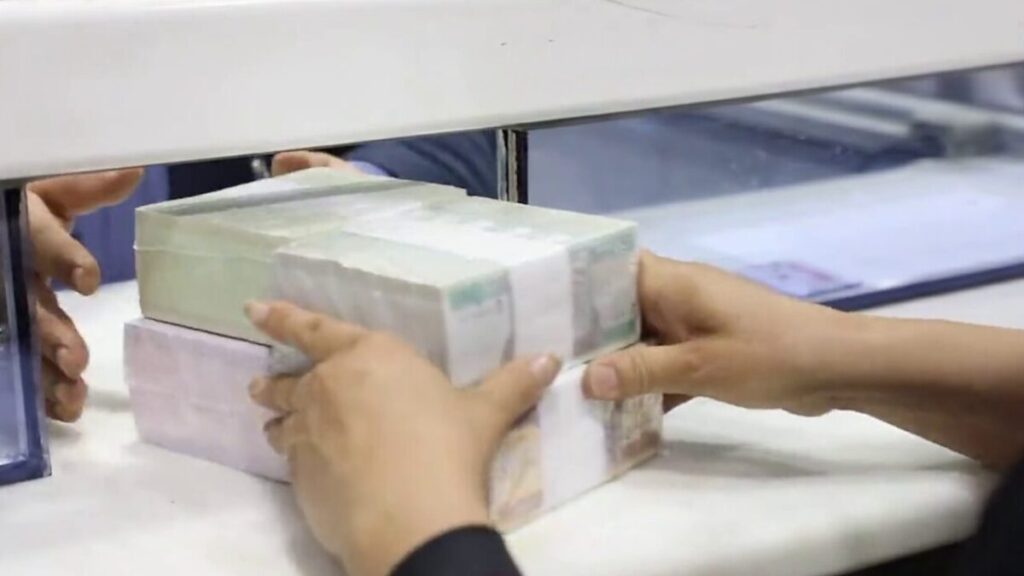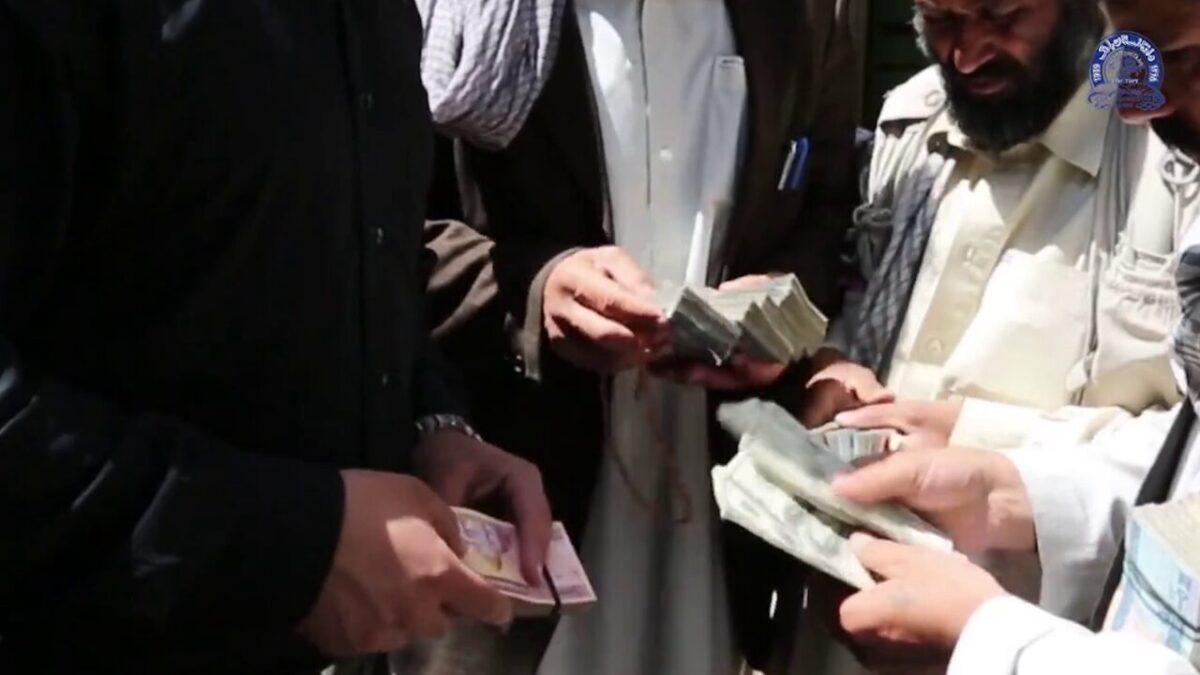The Afghani currency has fallen sharply against the dollar in recent days, fueled by renewed scrutiny in the United States over financial aid flowing to Taliban-controlled Afghanistan.
Over the past week, the value of the Afghani dropped by nearly five Afghanis against $100, with the exchange rate rising from 70 Afghanis per dollar to 75 Afghanis, according to official data. Despite efforts by the Taliban-led Central Bank to stabilize the currency through two dollar auctions totaling $31 million, the downward trend persists.
The decline comes amid political backlash in the U.S., where lawmakers have voiced concerns about the Biden administration’s handling of aid to Afghanistan. Former President Donald Trump recently criticized the billions of dollars sent to Afghanistan, calling for stricter controls on funds reaching the Taliban.

The currency’s slide has added to the financial strain on Afghan households, where poverty is already widespread. In Kabul, market prices for essential goods have risen sharply:
A 50-kilogram bag of flour now costs 1,500 Afghanis, up by 50 Afghanis.
Five liters of cooking oil have increased to 570 Afghanis, a rise of 20 Afghanis.
Seven kilograms of sugar now cost 380 Afghanis, up by 10 Afghanis.
“The devaluation of our currency has made life even harder,” said one shopkeeper in Kabul, noting that food prices have soared as the exchange rate weakens.
In Washington, efforts to curtail aid to Taliban-run Afghanistan are intensifying. Representative Tim Burchett recently introduced legislation to block foreign funds from reaching the Taliban. Anna Paulina Luna, another member of Congress, criticized the flow of aid, stating, “Terrorists should not receive even one cent of U.S. taxpayer dollars.”
On the social media platform X, Ms. Luna claimed that the U.S. sends $40 million weekly to Afghanistan under the Taliban’s control. This follows a report by Representative Michael McCaul, Chair of the House Foreign Affairs Committee, which alleged that the Taliban have created fake organizations to divert international aid and placed loyalists within United Nations agencies.
Adding to the controversy, Elon Musk, a Trump appointee for government efficiency, expressed surprise at the continued flow of taxpayer money to Afghanistan.
The Taliban-led Central Bank has defended its actions, stating it is “closely monitoring monetary markets and taking necessary measures to stabilize prices and exchange rates.” However, experts say the Bank’s efforts, including dollar auctions, have had little effect in reversing the currency’s slide.
The Afghani’s decline reflects deeper economic challenges under Taliban rule. Nearly 23 million people in Afghanistan are in need of humanitarian aid, according to the United Nations, as the country faces international sanctions and limited access to foreign reserves.




